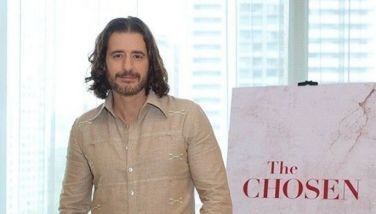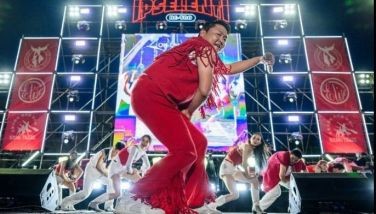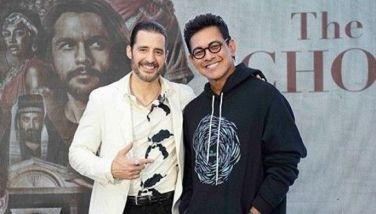Turning Red shows how mother-daughter relationships are complex yet full of love
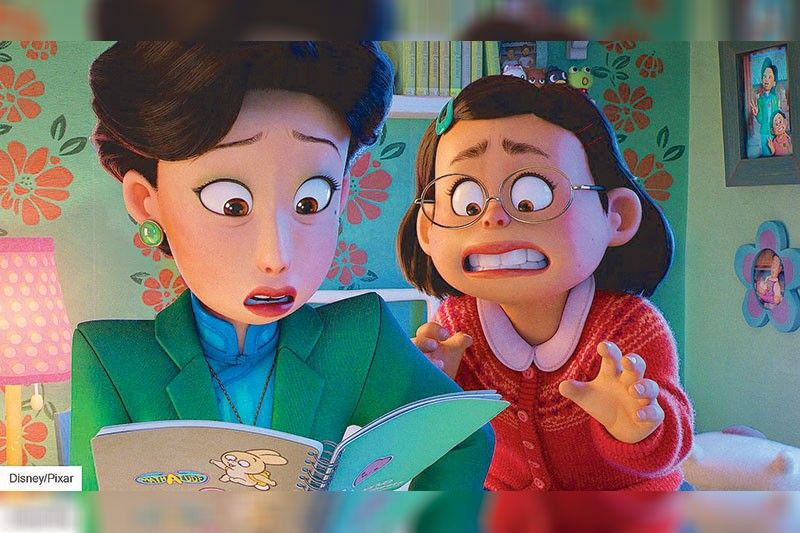
Oscar-winning director Domee Shi had fun exploring mother-daughter relationships in her first full-length film, Disney-Pixar’s Turning Red.
In the animated movie set in early-2000s Toronto, the central character is Mei (voiced by Rosalie Chiang), an overachieving Chinese-Canadian girl who has officially become a teenager, with minor crushes, boy band obsession and all.
While navigating this unique and confusing place that is adolescence with her besties, the only child goes through if not goes for new experiences that don’t necessarily sit well with her overprotective mom Ming (voiced by Sandra Oh) who holds her to exacting standards.
Whenever things don’t go her way and her puberty-induced emotions get the better of her, Mei magically turns into a giant red panda, adding to the mess and excitement of mid-school life.
Domee, who not only directed but also co-wrote the film with American screenwriter Julia Cho, likened Mei’s transformation to a cute version of The Incredible Hulk. The filmmaker explained, “One minute, everything’s perfect. And then, just like with all of us, all of a sudden there’s terror everywhere. She’s way taller, hungrier, more emotional. She’s, in fact, turned into a giant red panda, and the only way to turn back into a human girl is to take deep breaths, calm herself down and control her emotions. It’s kind of like The Incredible Hulk, but cuter.”
Turning Red producer Lindsey Collins said it best when describing Domee’s new film four years after her Oscar-winning Bao, the first Pixar short to be directed by a female director.
Said Lindsey: “It’s a coming-of-age story about change and those transitional moments. It’s about that time in our lives when we’re trying to figure out who we are. We have a girl who is torn between her family and her friends, learning that she’s not at all who she thought she was. And we have the mother whose daughter is suddenly interested in strange music and boys — a mother who struggles with letting go so her child can become who she needs to be. It’s a universal theme that rings true whether you’re the parent, the child, or maybe both.”
For the producer, what made Turning Red largely relatable even with its fantastical storyline is because it’s “rooted” in Domee’s own life.
“She was 13 in 2002,” said Lindsey of the 33-year-old Chinese-Canadian director, who is an only child herself to Chinese immigrants. “She had a very tight and somewhat hilarious and complex relationship with her mom. Some of the craziest moments in the film are based on things that actually happened to Domee.”
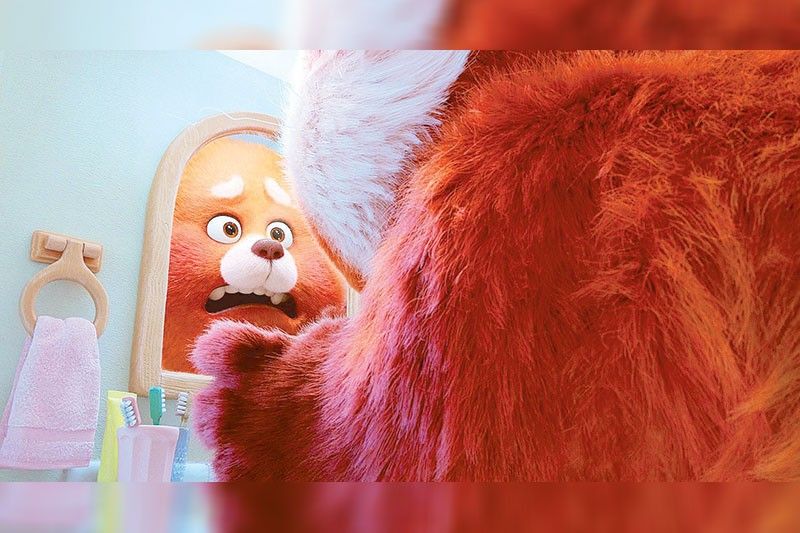
Her filmmaking approach is what also sets Turning Red apart from other coming-of-age stories. Said Lindsey, “She moves fast; she’s super decisive. She brings an unexpected and unapologetic quirkiness to her storytelling, the stylization, and to the entire film.”
The STAR got to interview Domee in a virtual roundtable with fellow Asian press about her real-life inspirations for Turning Red, which made her only the second woman to direct a Pixar film to date.
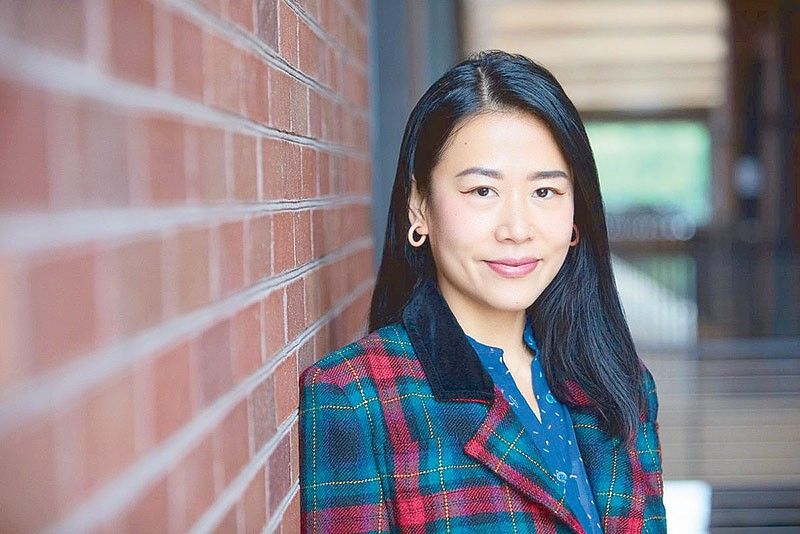
Your previous work Bao is about a mother and her son. This time, Turning Red is about a mother and daughter. Why are you so into this kind of topic?
“I’m really fascinated by the mother-child relationships because I think the mother, that’s the first relationship that you really develop when you’re growing up. And I know for me, especially with my relationship with my mom, it was one of the most formative ones in my life. I really wanted to explore that moment where your most important relationship goes, from your parents, your mother, to your friends, and that shift and what’s happening during that time of adolescence. I think that’s really, like, a juicy, interesting area to explore.
“And just the whole dynamic between mothers and daughters is so complex and emotional. There’s, you know, a lot of love but also a lot of fighting, and there are mind games and it’s just great to have some movie around it.”
How much of real life served as inspiration for Turning Red and were the autobiographical parts hard to write?
“Yeah, um, yeah. I mean, Mei is definitely or was me when I was 13. And her whole struggle with puberty, with her relationship with her mom that was definitely drawn from my own life. And that’s where a lot of like, great movies come from. Great stories, like a lot of them, come from a personal place, like a personal kind of experience that the filmmaker has had. Because it’s real, that’s where the truth lies, because it actually happened.
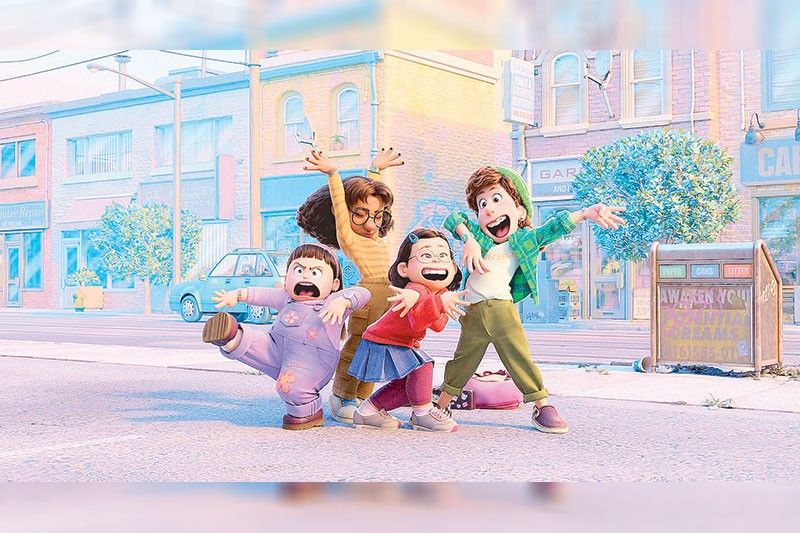
“But, I was careful to not make it too autobiographical. Because, you know, it’s also animation and the point of animation is to exaggerate and abstract and to fantasize and to make magic out of the mundane, too. So, we were careful to follow the characters in the story and where they wanted to go versus sticking so true to what actually happened.”
What was your biggest act of rebellion against your mom when you were a kid that is safe to say?
“It’s okay. It’s been a long enough time. Oh, my biggest form of rebellion… I don’t think I’ve ever told her but it was — I forged her signature on my report card. Once. My grade was so bad once. It was one class where I thought I could make up the grade by acing the test like, I assumed there was going to be an exam at the end of the semester and I could ace it. But there was no test at all, like my grade was completely dependent on the assignments that I didn’t do. So, my grade for the midpoint was like 40 percent and I could never show my Asian mom a 40 percent on a report card. So, I freaked out and I forged her signature. And I never told her and she still doesn’t know to this day.
“Oh, I was in high school. I think I was in Grade 10 or something. But uh, yeah, that was my biggest, I guess, rebellion. Is that a rebellion? Flunking class, never telling your parents? But then I made up for it, I squeezed in extra silence and I got it up to like a B- by the end. She was still horrified, ‘B- ?’ I was like, I know, yeah, everyone’s got like a B- in this class. And maybe I had to be like, yeah, it’s a really hard class. He’s just a really crazy teacher who just grades really terribly (laughter).”
What’s your mom’s reaction to Turning Red?
“She hasn’t seen it yet. But she will see it when we premiere it next week around Canada. I’m very nervous. Yes, I’m sweating. I hope she likes it. But she hasn’t seen it yet. She has seen character designs of the mother. And she’s very pleased that the mother in this movie is more beautiful than the mother in Bao. She approves of the character design at least. Thank you (for the good luck). Pray for me (laughter).”
(Turning Red hits Philippine theaters tomorrow, March 10.)
- Latest
- Trending

















